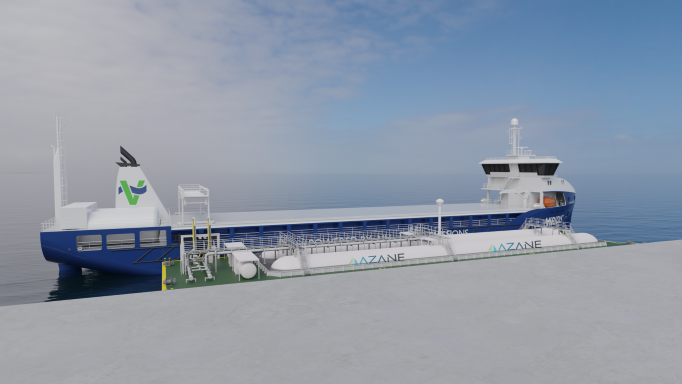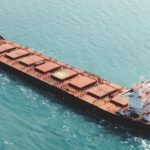Norway-based research organization SINTEF intends to work on solving research hurdles linked to the use of ammonia as a zero-emission fuel for the shipping sector.
The Minister of Climate and Environment for Norway, Sveinung Rotevatn, announced at the end of last week that the project Ammonia Fuel Bunkering Network would receive NOK 89 million through the Green Platform Initiative.
The project is two-pronged, consisting of an industry part and a knowledge-building part.
The industry part, led by Azane Fuel Solutions — a joint venture between ECONNECT Energy and Amon Maritime — will develop and demonstrate an ammonia fuel bunkering network for ships.
SINTEF will lead the knowledge-building part of the project, with a focus on overcoming key technical hurdles and safety issues in the design and use of ammonia-driven engines and fuel cells.
“We’ve known about the potential of ammonia as a zero-carbon fuel for a long time, and we’re very excited to start working on actually making it happen and enable a decarbonisation of the maritime industry,” Cecilia Gabrielii, Research Scientist at SINTEF, commented.
Among other things, the research team will use experiments and modelling to improve fuel cell lifetimes and engine combustion efficiency.
The research organization will develop new models for simulation of ammonia dispersion that will make it possible to enhance the safety measures for ammonia bunkering installations. In addition, it will establish better methods for techno-economic analysis and greenhouse gas assessments of the whole ammonia value chain, with a view to help decision-makers in the coming transition. Results will be disseminated effectively to facilitate faster implementation of ammonia as a maritime fuel, according to SINTEF.
“Azane Fuel Solutions will develop, build and operate the first bunkering terminal in a Norwegian port, under real conditions. This first green ammonia terminal will be an important enabler for international adoption of ammonia fuel,” Miriam T. Wennberg, CFO at ECONNECT Energy, commented.
The first bunkering terminal is scheduled to be in operation as early as 2023.
Source: Offshore Energy






